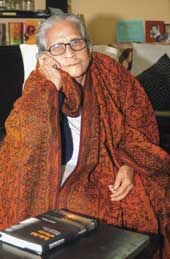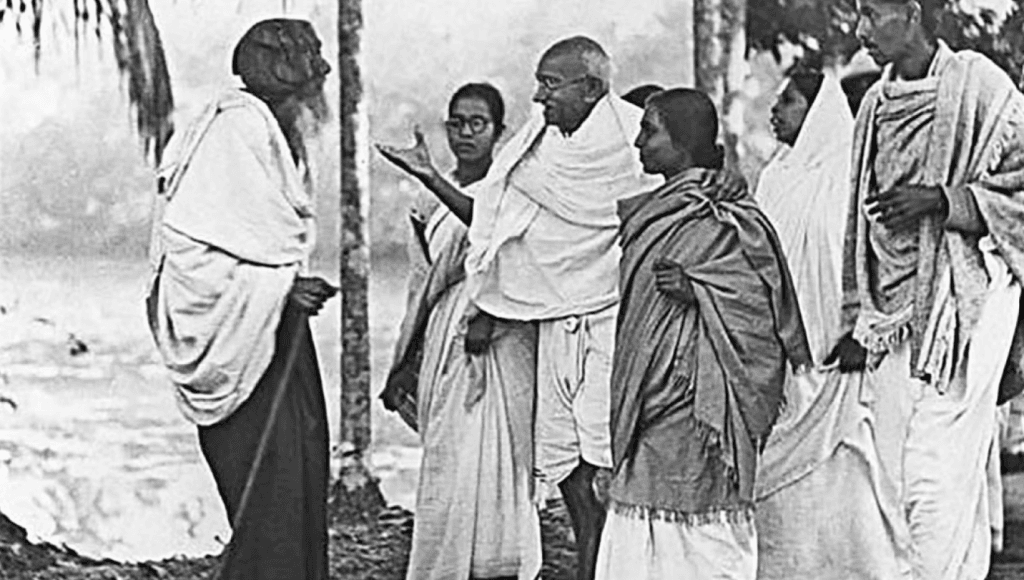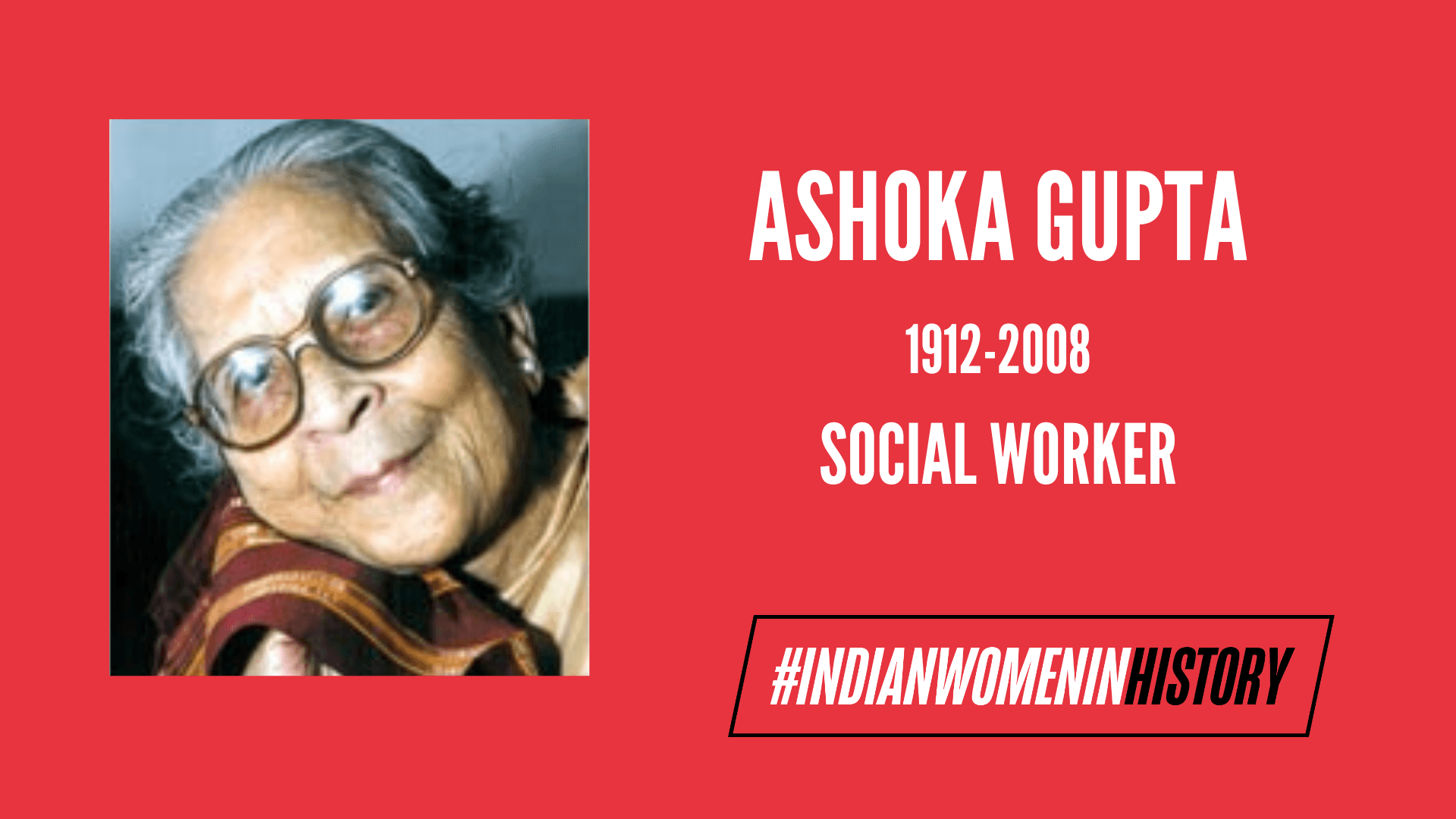Unwavering resilience, boundless compassion and relentless empathy—those who are even remotely familiar with the enduring legacy of Ashoka Gupta have indelibly described her as having these qualities. She is known to have inspired thousands of lives through her unwavering dedication to social service.
And yet, her life and work majorly remain shrouded in obscurity.
Ashoka Gupta’s early life
Ashoka Gupta was born in Bengal in 1912, at a time when women were often confined to the home, with limited access to education or public life. At such a time, when female literacy was considered a bad omen, a gateway to the condemned realm of widowhood, Gupta managed to top matriculation and graduate from Bethune college with honours in Mathematics.

Her long journey in social work began with her joining the All India Women’s Conference in 1936, where she was constantly involved in efforts to mobilise resources, people and funds for various social issues. When the devastating Bengal famine struck in 1943, she was actively involved in coordinating aid, managing distribution centres, and ensuring that food and other essential supplies reached those in need. This marked her definitive foray into social work
The Noakhali tragedy
However, her most notable work was perhaps in Noakhali during the Noakhali massacres in 1946, which stood as a disastrous testimony to the growing communal divide and diminishing religious harmony which was tearing India apart. It included harrowing incidences of killings, forced conversions, looting, arson, and sexual violence.

Gupta, then the newly appointed convenor of a Relief Committee formed immediately sprang into action. She initially distributed relief materials to fleeing villagers.
However, when Mahatma Gandhi arrived in Noakhali, he advised workers like Ashoka to set up camps in interior villages to restore confidence among terrified Hindus. Following his advice, Ashoka established her base in an interior village, taking her young daughter with her. The widespread violence and crimes against women and their bodies during the riots particularly affected her, and she dedicated her efforts to addressing these issues. She particularly worked on the plight of abducted and molested women.
She notes in her Noakhali Durjoger Dine: “We came across cases of physical assault on women when rioters attempted to forcibly take away money and jewellery. Even young girls who had not yet reached marriageable age were not spared.“
She spent time talking to women individually to gain their trust and document their experiences. “Sometimes we had to talk to them alone for a long time before they dared to open up about their experiences.”
Her extensive grassroots-level work, rooted in Gandhian philosophy, was essential in gaining the trust of the victims. She immersed herself in the community to understand their point of view at a time when authority was viewed as indifferent to the plight of the victims.
However, her efforts to bring targeted relief to women were met with a lukewarm response. Her disappointment in societal and administrative apathy to the plight of women is particularly noted in In a letter she wrote dated 25.10.46 to the Editor of The Statesman.
“Fifteen days have passed since the trouble started at Noakhali and from the very beginning press reports showed that offences against women were committed on a large scale.
Yet the Anglo Indian Press was inexplicably silent and very few British men and women whom I met expressed even a lukewarm interest in the affair.
I feel that when crimes against women are committed, the question should not arise whether this is a civil war or a rising of one community against one another, but that women as a community should come forward and say that this state of affairs should not be tolerated.”
Gupta was one of the first women to foreground violence against women during the riots as a universal issue and played a crucial role in bringing the exploitation of women during riots in a deeply patriarchal society to the limelight.
She had a lasting impact in Noakhali and became an unforgettable figure for thousands of souls. Her extensive work and on-the-ground interaction with direct victims of violence established her characteristic ways of working as a social worker grounded in empathy and inclusion – one that endeavours to find out through their voices and perspectives.
However, Noakhali was just a stepping stone for her enduring contribution to social work. She was deeply affected by the trauma, devastation and loss of partition. All her efforts at peace had come to naught.
She did not, however, stop.
Ashoka Gupta after Noakhali
Post-independence, Ashoka’s focus shifted to refugee rehabilitation, child literacy and upliftment of rural women and tribals. She was a staunch believer in the Gandhian philosophy of nation-building at the grassroots.
She played a crucial role in coordinating the efforts of various voluntary organisations in West Bengal for the rehabilitation of refugees. She later founded the Mahila Seva Samita, targeting her focus on rehabilitation and rescue work and eventually went on to serve as the Chairperson of the West Bengal State Social Welfare Advisory Board, focused on promoting social welfare policies and programmes in the state.
Her work in education and literacy has been vast and long-ranging too, establishing schools like AIWC Buniadi Vidyapith and other community development programmes contributing to the education and empowerment of thousands of girls.
The barbed wires of partition did not stop her from practicing universal empathy. After 20 years of independence, she still stood by her husband to battle the injustices done to the refugees from East Pakistan who had migrated in the 1960s and were being ‘rehabilitated’ in the wilderness called Dandakaranya. She saw the universal qualities of humanity which made
Ashoka’s lasting legacy
She was awarded with Jamnalal Bajaj Award in 2007 an ode to her indomitable spirit and unrelenting dedication to social work. Ashoka Gupta’s work in the social field stands as an example of the universal spirit of humanity flouting borders, class and caste. Her work as a women’s rights activist initiated important conversations about women’s as victims of sexualised violence during periods of hate crime having lasting impact on generations to come
Finally, Gopal Gandhi’s statement captures Ashoka towering impact on all those around her: “For Ashoka-di, there was no pausing between activities. It was an incessant commitment to the service of the people.”
References:
- https://www.eajournals.org/wp-content/uploads/Ashoka-Gupta-and-the-Riot-Torn-Noakhali.pdf
- https://www.india-seminar.com/2002/510/510%20ashoka%20gupta-noakhali.htm
- https://www.exoticindiaart.com/book/details/fighting-spirit-selected-writings-of-ashoka-gupta-uaj829/
- https://niyogibooksindia.com/books/a-fighting-spirit/
- https://www.countercurrents.org/kamal160712.htm
- https://books.google.co.in/books?id=Zz3eKF7NdlAC&q=Bela+Mitra&pg=PA68&redir_esc=y#v=snippet&q=Bela%20Mitra&f=false
- https://www.ijssr.com/wp-content/uploads/journal/published_paper/volume-2/issue-1/IJSSR30256.pdf
- https://www.andrewwhitehead.net/partition-voices-ashoka-gupta.html
- https://www.telegraphindia.com/west-bengal/for-seven-decades-a-guide-and-helping-hand/cid/1271395
- https://www.jamnalalbajajfoundation.org/media/pdf/JBA_2007_Bio_Ashoka_Gupta.pdf
About the author(s)
Sohalika Shrivastava is a 3rd year student at IIT Madras out and about to carve a niche for herself. In her free time she likes to read about and learn animal fact




